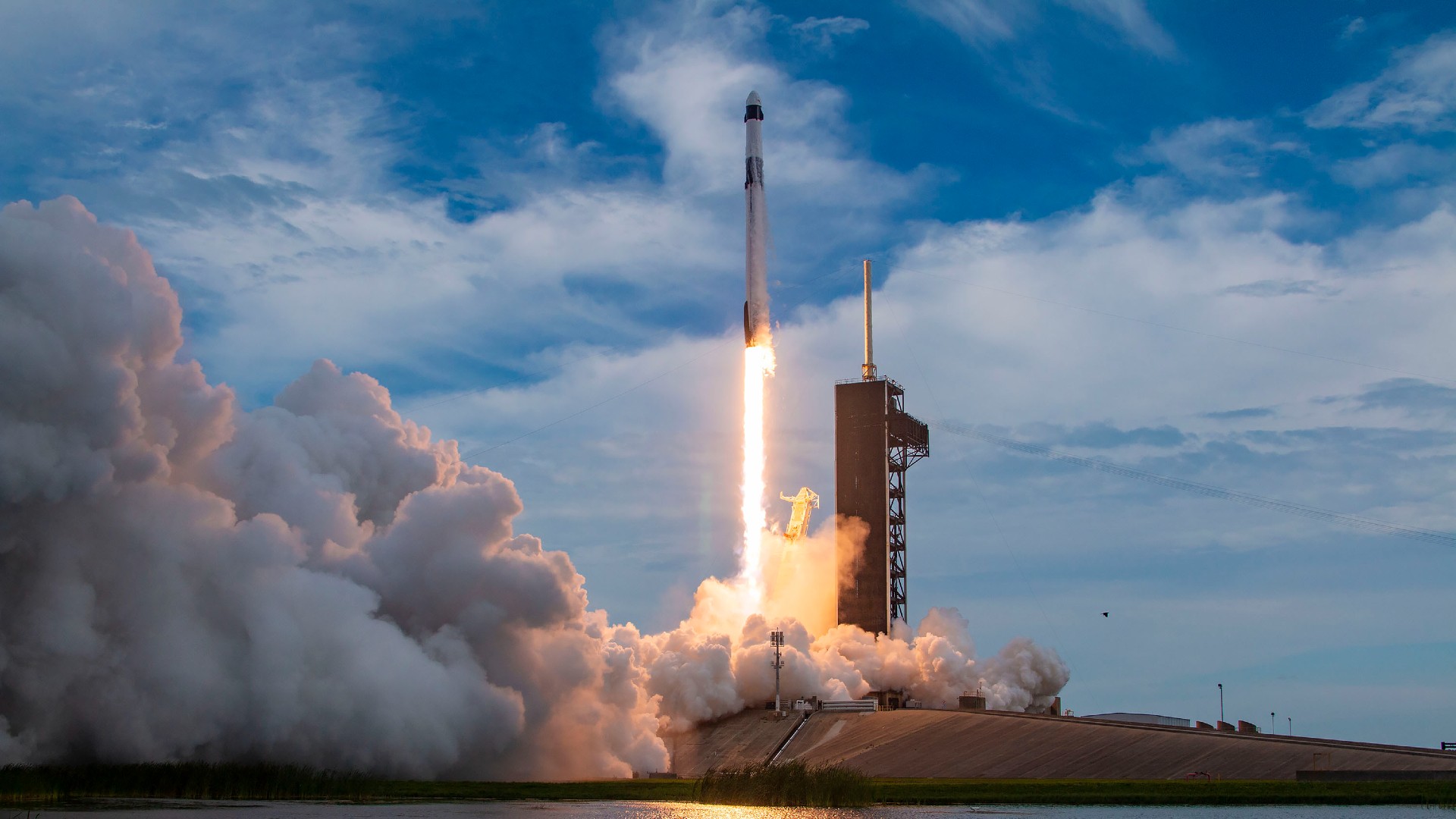
The launch of the historic Ax-2 mission to the International Space Station (ISS) was a photogenic one.
Incredible new images show the successful launch and landing of the SpaceX Falcon 9 rocket that carried the Axiom Space Ax-2 crew to space. Just as the mission set a number of firsts for spaceflight, the landing of the first stage of the Falcon 9 LZ-1 was its own first for SpaceX.
The Falcon 9 blasted off at 5:37 p.m. EDT (2137 GMT) on Sunday (May 21) from the historic Launch Pad 39A at NASA's Kennedy Space Center in Florida. Images shared by SpaceX on Twitter show the story of the launch as seen from ground level in exquisite detail.
Related: SpaceX launches Ax-2 private astronaut mission to station, 1st Saudi woman in space on board (video)

The launch represented the tenth time that the SpaceX Dragon Crew module has carried humans into space. Aboard the Dragon capsule were commander and retired NASA astronaut Peggy Whitson, mission pilot John Shoffner and graduates from Saudi Arabia's first astronaut class, Ali AlQarni and Rayyanah Barnawi. Barnawi is now the first Saudi Arabian woman in space.
Whitson, also Axiom Space's director of human spaceflight, is almost as experienced a space traveler as the Dragon craft, with four previous missions and a record 665 days in space under her belt prior to Ax-2.
Photographs from the launch of the mission show the initial moments of the launch, with the Falcon 9 boosters firing and carrying the rocket above the launch tower.
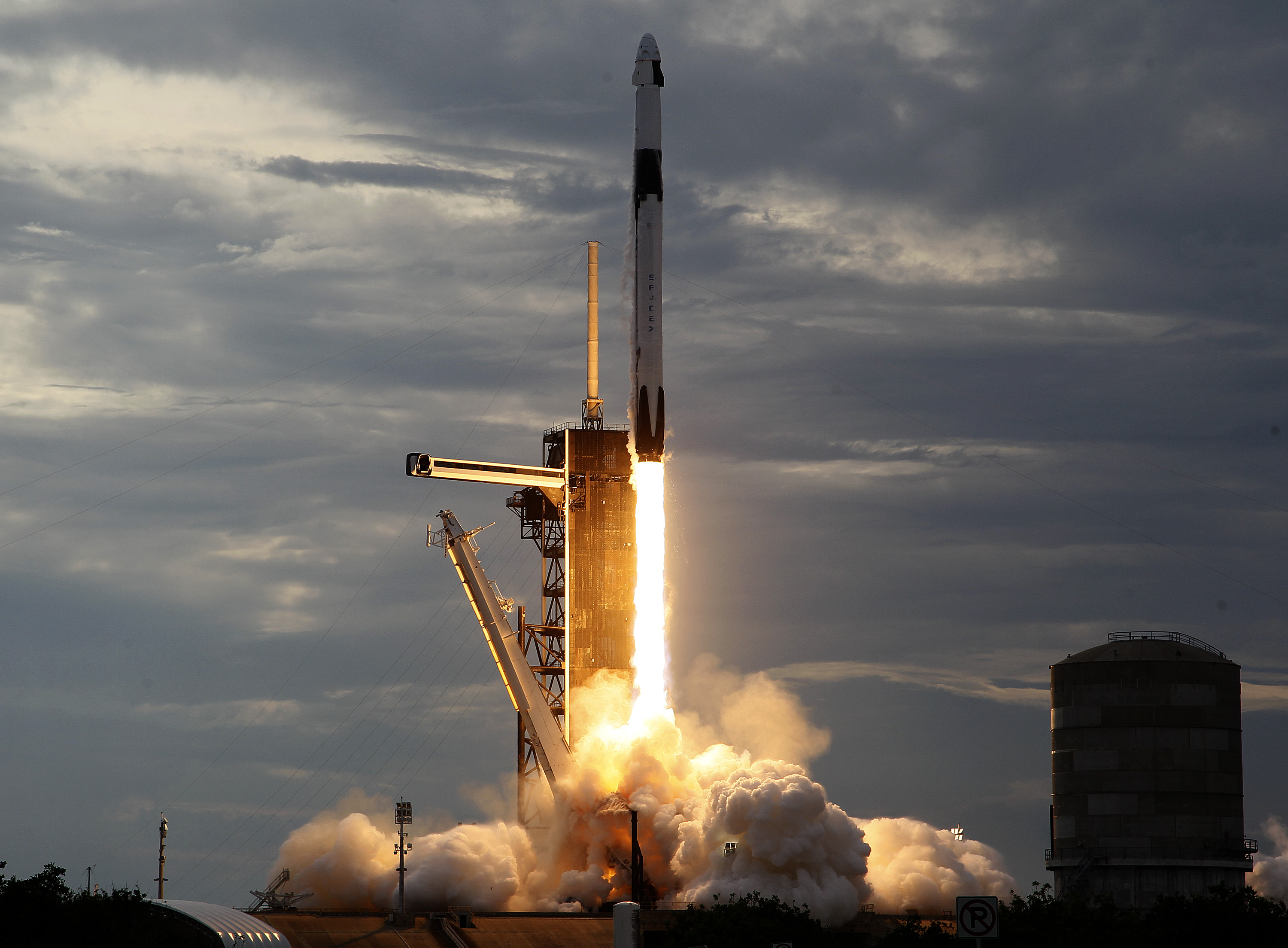
The rocket then climbed high into the sky over Florida followed by a blazing orange trail.
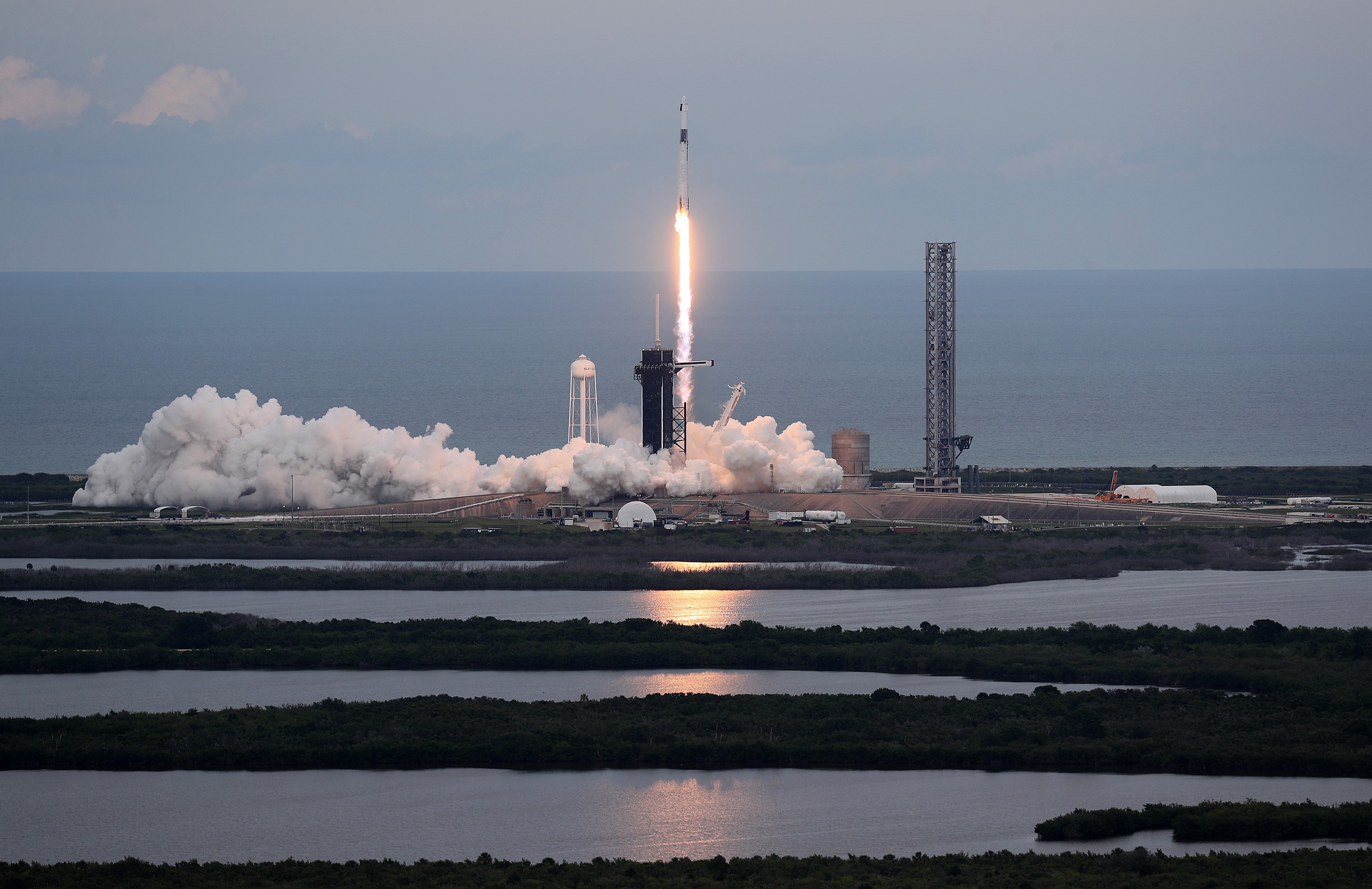
The Ax-2 crew then journeyed to the upper atmosphere under the command of Whitson, now the first woman to lead a private space mission.
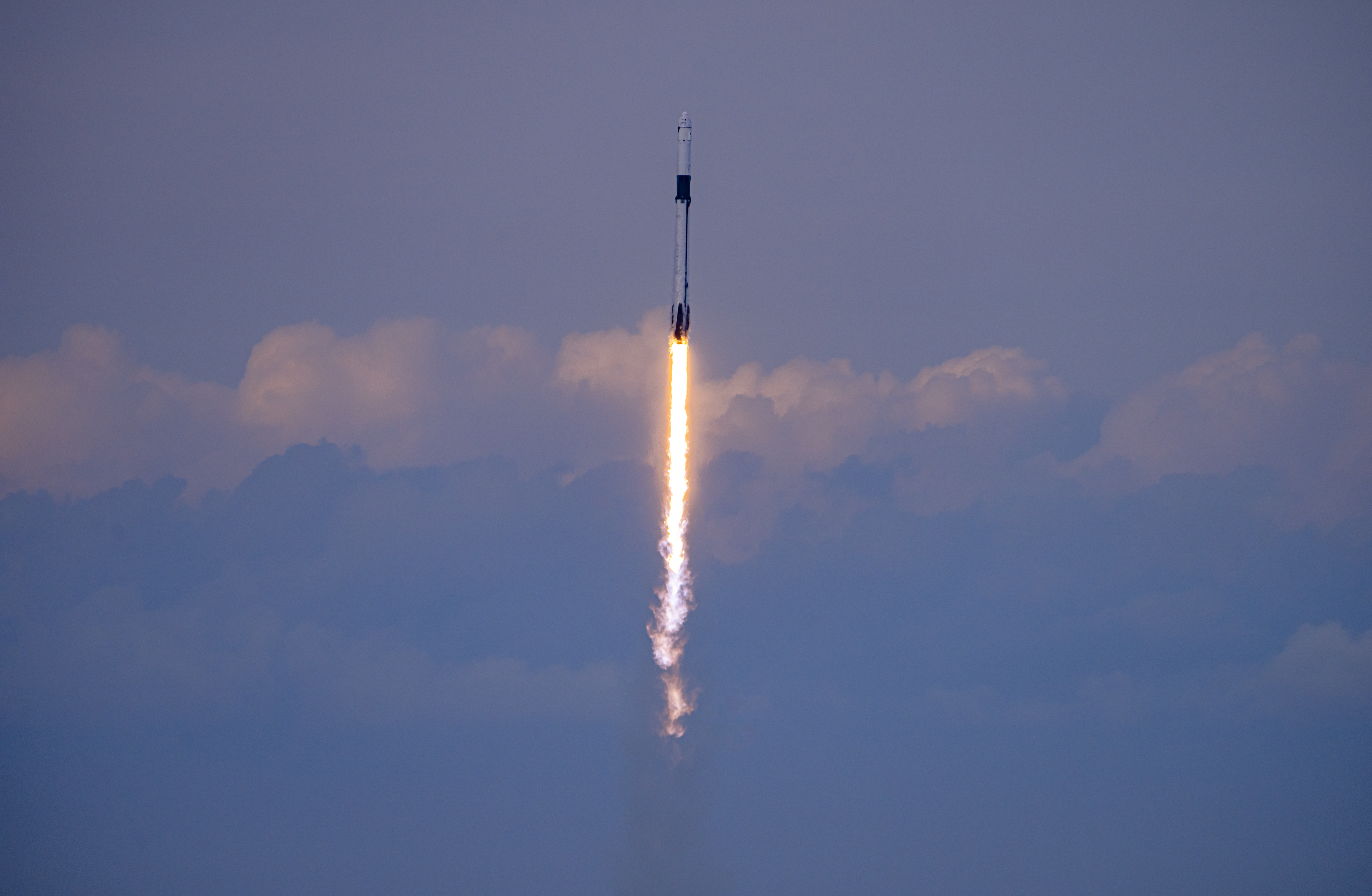
The first stage of Ax-2's Falcon 9 rocket performed a maneuver called a "boost-back burn," a retrograde burn that is performed straight after stage separation that redirects the reusable first stage to the landing pad or thereabouts.
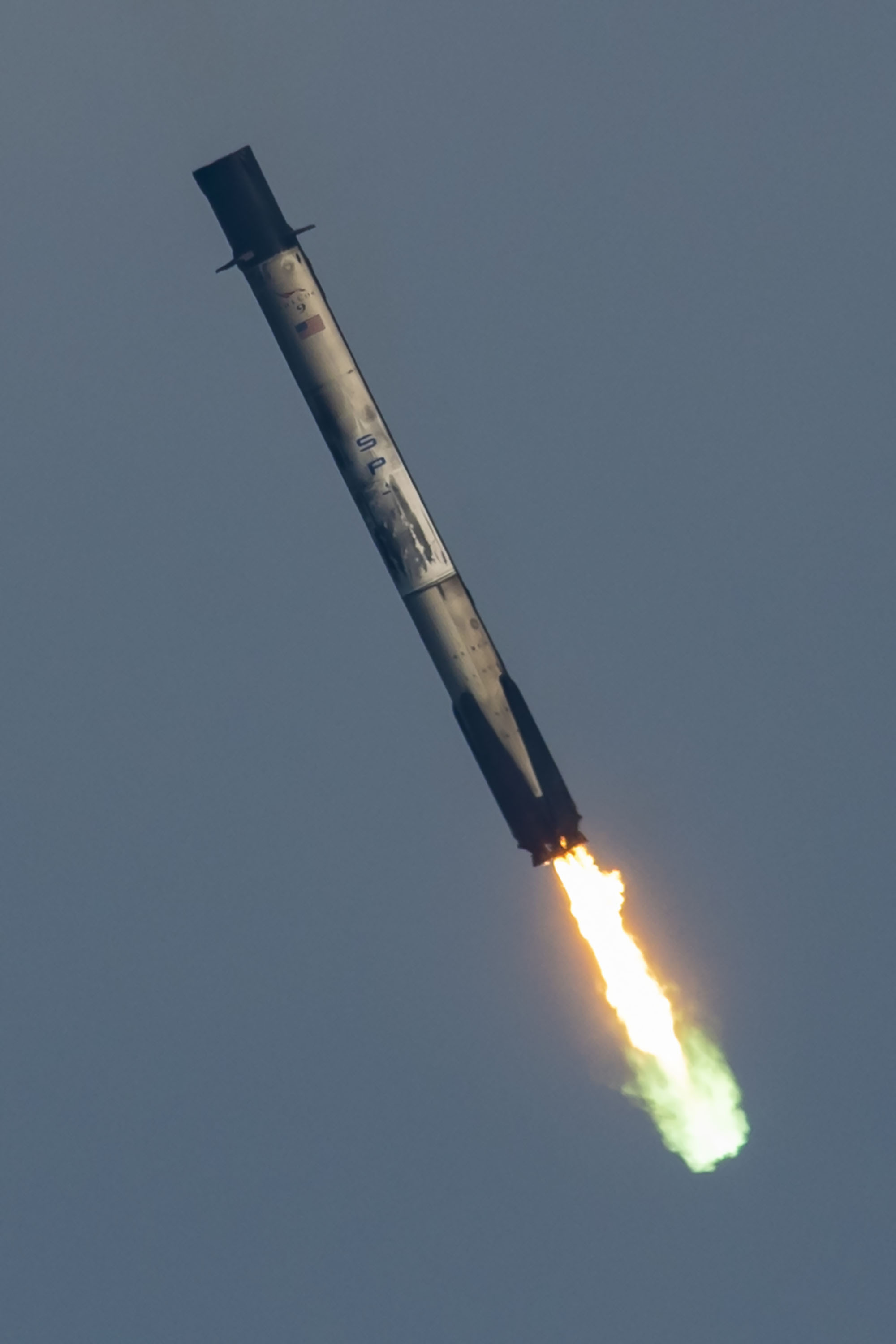
The Ax-2 mission's Falcon 9 first stage then returned to SpaceX's Landing Zone-1, located close to its launch site of Pad 39A.
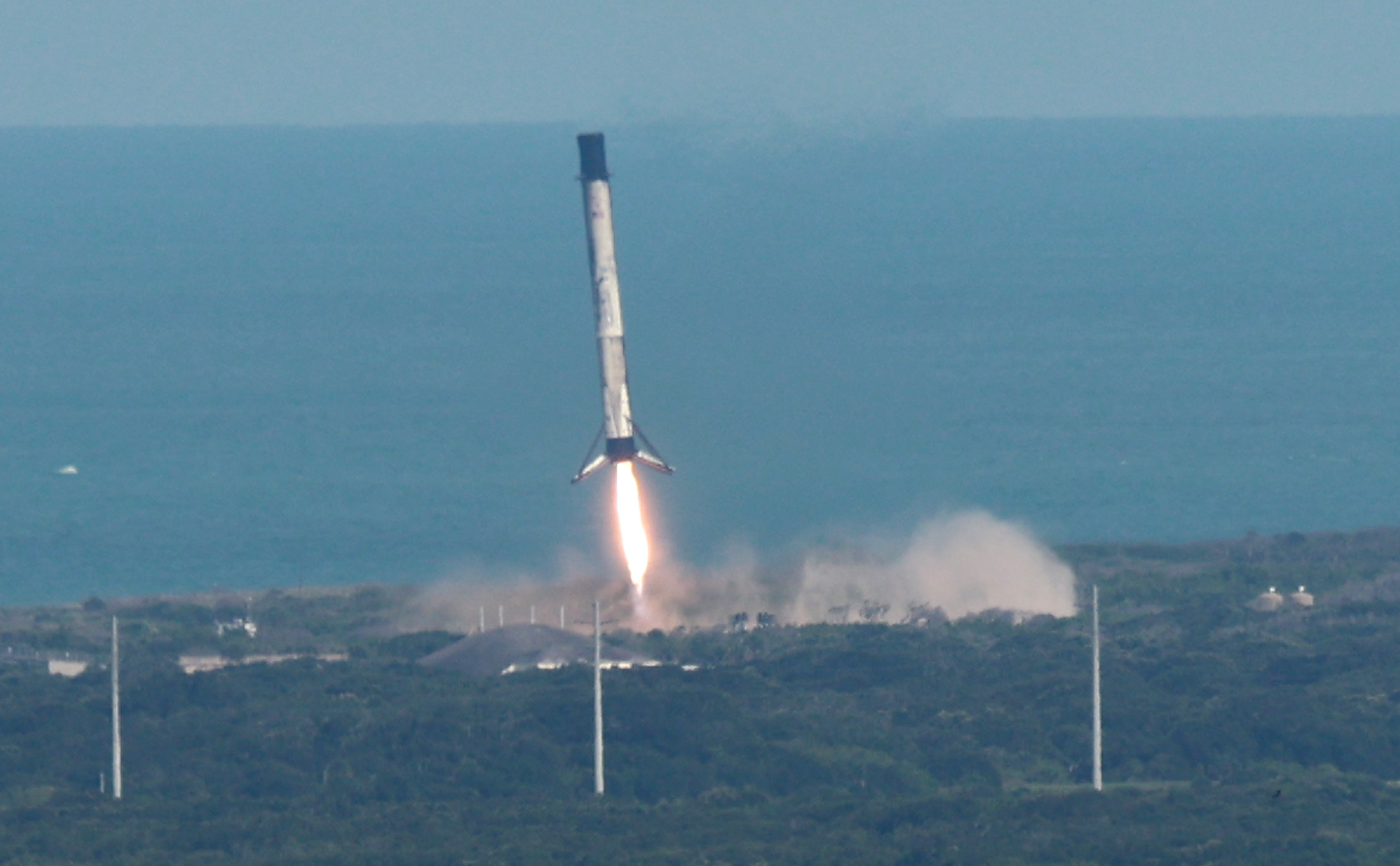
The booster extended its landing legs, locking them in place before safely touching down just 7 minutes and 45 seconds after launch.
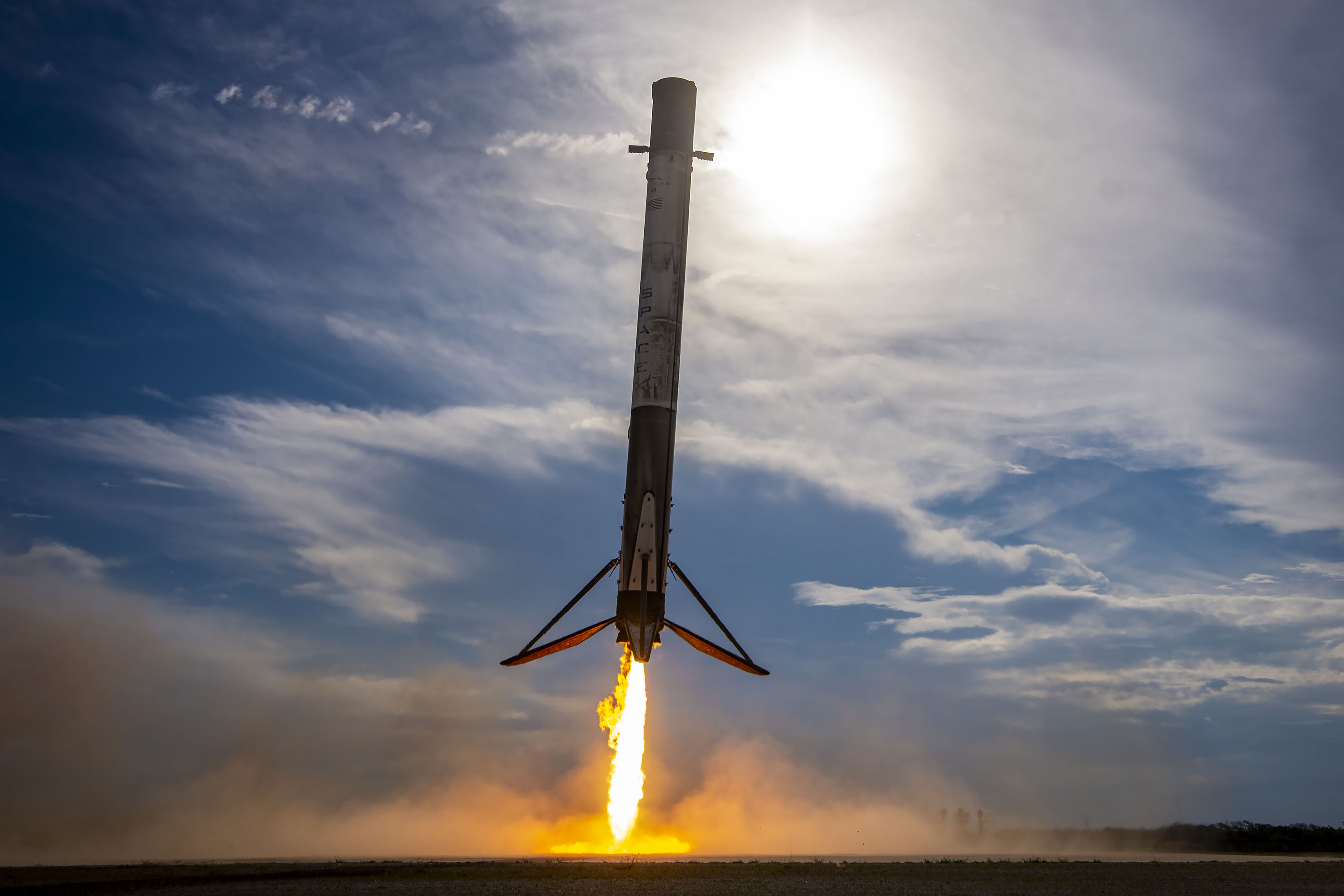
Of course, as this was occurring, maneuvers were also taking place high above the Earth. The Dragon spacecraft, named Freedom, separated from the upper stage of the Falcon 9 around 12 minutes after launch and at an altitude of around 300 miles. Following this, the Ax-2 crew docked at the ISS at 9:28 a.m. EDT (1328 GMT) on Monday, 22, 2023.
As the astronauts stepped aboard the space station, the firsts continued as Barnawi and AlQarni became the first Saudi astronauts to reside on the space station. The Ax-2 crew will now spend eight days aboard the ISS before heading back to Earth.







